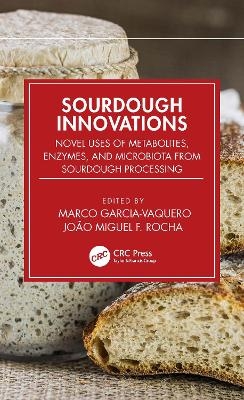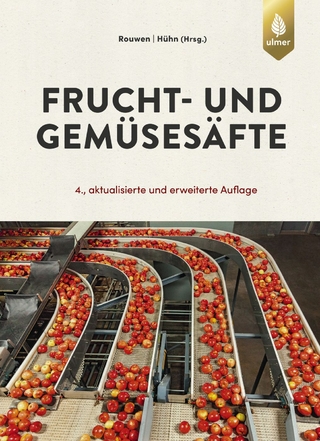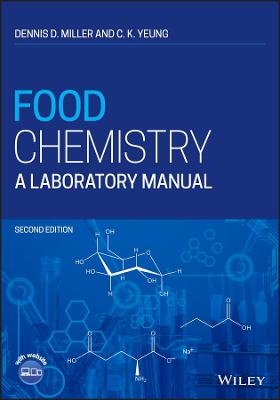
Sourdough Innovations
CRC Press (Verlag)
978-0-367-67497-7 (ISBN)
Sourdough fermentation was probably one of the first microbial processes employed by mankind for the production and preservation of food. This practice is still widely used worldwide due to the distinct sensorial and health properties attributed to these products. Traditional sourdough bread is achieved by spontaneous fermentations, leading to natural selections of microorganisms (mainly yeast and lactic acid bacteria) with health benefits for the consumers’ microbiota. However, multiple opportunities are currently underexploited through the entire sourdough value chain. Sourdough Innovations: Novel Uses of Metabolites, Enzymes, and Microbiota from Sourdough Processing summarizes the latest scientific knowledge and current opportunities of sourdough technology at biomass, microbiota and enzymatic levels described in three distinctive sections.
Section I covers the fermentation process of cereals and non-cereals to produce sourdough-containing compounds with health-enhancement benefits. Section II includes novel advances in sourdough enzymology, and last, Section III explores various applications of sourdough microbiota as antimicrobial and probiotic microorganisms and opportunities to be included in both food and non-food applications.
Key Features:
Includes extensive information on the use of innovative or emerging technologies aiming to promote circular exploitation systems.
Promotes the full use of the cereal and non-cereal sourdough metabolites.
Covers the functionality of sourdough microorganisms and functional compounds, and future exploitation of some of them in the field of nutraceuticals or functional foods.
Sourdough Innovations is unique in its examination of health beneficial compounds through the downstream processing of sourdough from cereals, microbiota, and enzymes. It is a great source for academic staff and scientists within the broad area of food science who are researching, lecturing, or developing their professional careers in food microbiology, food chemistry, food processing, and food technology, including bio-process engineers interested in the development of novel technological improvements in sourdough processing.
Marco Garcia-Vaquero is Assistant Professor in the section of Food and Nutrition at the School of Agriculture and Food Science at University College Dublin (UCD, Ireland). He has a broad research experience in food science research with working experiences in Spain (University of Santiago de Compostela) and Ireland (Teagasc and UCD) where he continues his research in the development of functional foods or nutraceuticals. João Miguel Rocha holds a 5-year degree in Biological Engineering, specialization in Chemical and Food Technology (University of Minho), and a PhD in Food Science and Engineering (ISA-University of Lisbon). Among complementary professional qualifications are the Life Cycle Assessment (LCA) and HACCP certifications. He is the Chair and Grant Holder Scientific Representative of the COST Action SOURDOMICS (CA18101). Currently, he is also a Secretary of the General Assembly board of the National Association of Science and Technology Researchers (ANICT).
SECTION I Cereal and Non-Cereal Sourdough Metabolites. 1. Sourdough fermentation as a way to improve health benefits and the sensory properties of bakery products 2. Cereals and cereal sourdoughs as a source of functional and bioactive compounds 3. Non cereal/legume based sourdough metabolites 4. Innovative technologies to extract high-value compounds from cereals and non-cereal biomass, sourdough and by-products SECTION II. Enzymes from sourdough cultures 5. Introduction to sourdough enzymology 6. Major classes of sourdough enzymes 7. Discovery, characterization and databases of enzymes from sourdough 8. Enzyme production from sourdough 9. Biotechnological applications of sourdough lactic acid bacteria: A source for vitamins fortification and exopolysaccharides improvement SECTION III. Innovative applications of sourdough microbiota 10. Sourdough as a source of technological, antimicrobial and probiotic microorganisms 11. Isolation, technological functionalization and immobilization techniques applied to cereals and cereal-based products and sourdough microorganisms 12. Sourdough microorganisms in food applications 13. Production of nutraceuticals or functional foods using sourdough microorganisms 14. Applications of sourdough in animal feed
| Erscheinungsdatum | 03.08.2023 |
|---|---|
| Zusatzinfo | 22 Tables, black and white; 31 Line drawings, black and white; 7 Halftones, black and white; 38 Illustrations, black and white |
| Verlagsort | London |
| Sprache | englisch |
| Maße | 156 x 234 mm |
| Gewicht | 780 g |
| Themenwelt | Technik ► Lebensmitteltechnologie |
| ISBN-10 | 0-367-67497-1 / 0367674971 |
| ISBN-13 | 978-0-367-67497-7 / 9780367674977 |
| Zustand | Neuware |
| Haben Sie eine Frage zum Produkt? |
aus dem Bereich


